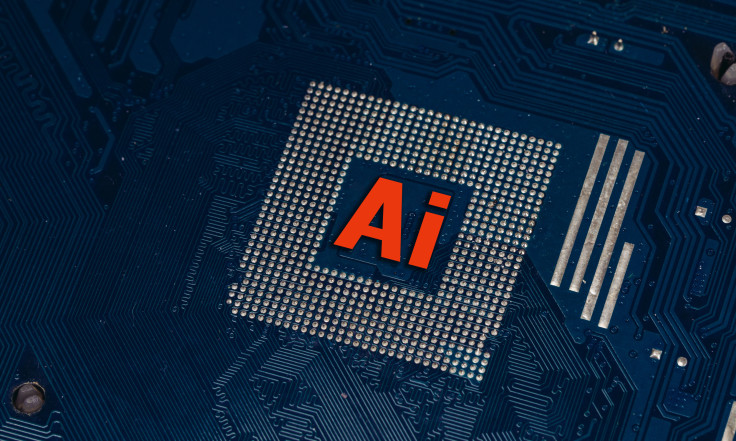Rishi Sunak Calls for Global Attention to AI-Related Extinction Risk, Citing Growing Security Concerns
In an address at the Royal Society, UK Prime Minister Rishi Sunak advocated for placing the mitigation of human extinction risks due to artificial intelligence (AI) on par with global concerns such as pandemics and nuclear war.

In a significant address at the Royal Society, Prime Minister Rishi Sunak emphasised the urgent need for the world to prioritise mitigating the risk of human extinction due to artificial intelligence (AI).
Sunak's assertion parallels the global priority assigned to pandemics and nuclear war and reflects growing concerns over the security implications of AI technology.
The UK government's latest analysis warns that AI poses major security risks to the United Kingdom within the next two years and has the potential to enhance the capabilities of various threat actors, including terrorist organisations.
The report released by the Government Office for Science highlights how AI could significantly bolster the capabilities of terror groups, enabling them to enhance their propaganda efforts, develop bioweapons and plan attacks more efficiently.
This revelation comes as Prime Minister Sunak delivered a speech on the "breathtaking" pace of change brought about by AI. He underscored that the transformative impact of AI could be as far-reaching as historical revolutions such as the Industrial Revolution, the advent of electricity and the internet.
Mr Sunak argued that the threat of human extinction posed by AI should be treated on par with the risks associated with pandemics and nuclear war, echoing the sentiments of experts in the field.
He further proposed the formation of a global expert panel to address this critical issue, emphasising the need for a coordinated and international approach to mitigate AI-related risks.
During a press conference, Sunak acknowledged the dual nature of AI, describing it as a force that offers solutions to previously insurmountable problems while simultaneously introducing new dangers and fears. He also asserted that the UK is at the forefront of efforts to keep its citizens safe and announced the establishment of the world's first AI institute in the UK.
The Prime Minister cited a statement made earlier by hundreds of AI experts, which emphasised the global significance of addressing the risk of AI-induced extinction. He reiterated, "Mitigating the risk of extinction by AI should be a global priority alongside other societal-scale risks such as pandemics and nuclear war."
Sunak also highlighted the potential dangers AI could pose if not managed properly. He warned that AI could facilitate the creation of chemical or biological weapons and enhance the capabilities of terrorist groups. Criminals could exploit AI for cyberattacks, fraud and even child sexual abuse. Additionally, he acknowledged the possibility of humanity losing control over AI, a concept often referred to as super-intelligence.
However, the PM was quick to strike a balance by acknowledging the vast potential benefits of AI. He praised AI's potential use in the healthcare sector, particularly in the NHS, where it could aid in diagnosing and preventing strokes and heart attacks. As a testament to this commitment, Sunak announced an additional £100 million in funding for AI treatments aimed at addressing previously incurable diseases.
In a somewhat controversial move, Prime Minister Sunak extended an invitation to China to attend the global AI summit to be held at Bletchley Park. He defended this decision as the right approach, given that the leading AI powers around the world should engage in discussions regarding the opportunities and threats posed by AI.
While Sunak acknowledged that it was not an easy decision to invite Chinese officials, Deputy Prime Minister Oliver Dowden confirmed that China had accepted the invitation. This move generated controversy, especially among some Conservative MPs, at a time when international relations with China remained tense. Dowden remained optimistic about China's participation in the summit, stating that they expected Chinese officials to attend the event.
The UK government's newly released report underscores the growing risk of AI-related threats, especially in the realm of cyber warfare. The report warns that AI is likely to make cyberattacks faster, more effective and on a larger scale, utilising tailored phishing methods and replicating malware to accomplish this.
Additionally, the report points out the potential "erosion of trust in information" through the use of "deepfakes", which create fake videos using someone's likeness, and "hyper-realistic bots", which are fake social media profiles that can generate fake news, personalised disinformation, manipulate financial markets and undermine the criminal justice system.
The report further raises concerns that by 2026, synthetic media could comprise a significant portion of online content, potentially eroding public trust in government institutions and exacerbating polarisation and extremism.
In a particularly sobering assessment, the Government Office for Science notes that a broader existential threat to humanity from AI cannot be ruled out. The report states that there is insufficient evidence to dismiss the possibility that highly capable AI systems in the future if misaligned or inadequately controlled, could pose an existential threat.
Moreover, the report highlights the potential for AI to disrupt the labour market by displacing human workers, a development that could necessitate the introduction of a "robot tax." This tax, levied on businesses benefiting from the replacement of workers by AI, could be a safeguard to protect the economy.
Technology Secretary Michelle Donelan emphasised that the UK is the first country to formally summarise the risks associated with AI technology. She acknowledged the transformative potential of AI to improve the world but underscored the imperative to address the associated risks.
© Copyright IBTimes 2025. All rights reserved.






















